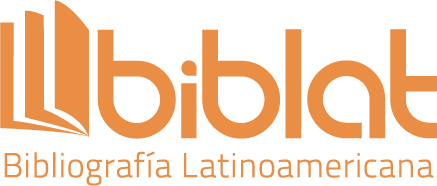Tratamiento residencial de la dependencia a metanfetamina: Análisis del descuento por demora y la disposición al cambio
DOI:
https://doi.org/10.37511/Abstract
Antecedentes: Líneas de investigación independientes han evidenciado que el descuento por demora y variables asociadas al proceso de cambio se encuentran estrechamente relacionadas con la conducta adictiva. La relación entre las variables en cuestión puede ser útil para informar sobre la dificultad observada en diversos contextos clínicos para rehabilitarse de una adicción. Objetivo: el objetivo de este estudio fue el evaluar la posible relación del descuento temporal y variables sobre el proceso de cambio en pacientes en tratamiento residencial involuntario sobre el consumo de metanfetamina. Método: 24 participantes bajo tratamiento por consumo de metanfetamina fueron evaluados al ingreso, a la mitad y al finalizar el tratamiento mediante el MCQ-27, el Cuestionario Breve de Confianza Situacional y el Sócrates 8D. Resultados: Los resultados muestran (1) estabilidad tasa de descuento a lo largo del tratamiento y (2) ausencia de relación entre el descuento por demora y las variables asociadas al proceso de cambio. Conclusiones: Los resultados son discutidos considerando la necesidad de adecuar los tratamientos en función del proceso de cambio e incorporar intervenciones basadas en autocontrol.
Downloads
References
Aklin, W., Tull, M., Kahler, C., & Lejuez, C. (2009). Risk-taking propensity changes throughout the course of residential substance abuse treatment. Bone, 23(1), 1-7. https://doi.org/10.1016/j.paid.2008.11.018.Risk-Taking
Amlung, M., Vedelago, L., Acker, J., Balodis, I., & MacKillop, J. (2017). Steep delay discounting and addictive behavior: a meta-analysis of continuous associations. Addiction, 112(1), 51-62. https://doi.org/10.1111/add.13535
Arreola, F (2019). Evaluación de la impulsividad en adictos a metanfetamina. En: Zepeda I., Cabrera F., Camacho J. y Camacho E. Aproximaciones al estudio del comportamiento y sus aplicaciones Vol II.(pp 306-328).
Arreola, F., Vargas, P., Domínguez, M., & Robles, E. (2019). Perceived social support as predictor of treatment completion in methamphetamine dependent individuals. Revista Internacional de Investigación en Adicciones, 5(2), 21-29. https://doi.org/10.28931/riiad.2019.2.03
Assadbeigi, H., Pourshahbaz, A., Mohamadkhani, P., & Farhoudian, A. (2016). Effectiveness of community reinforcement and family training ( CRAFT ) on motivational stages of change of drug abusers to engage in treatment. International Journal of Humanities and Social Sciences, 685-694.
Athamneh, L. N., DeHart, W. B., Pope, D., Mellis, A. M., Snider, S. E., Kaplan, B. A., & Bickel, W. K. (2019). The phenotype of recovery III: Delay discounting predicts abstinence self-efficacy among individuals in recovery from substance use disorders. Psychology of Addictive Behaviors, 33(3), 310–317. https://doi.org/10.1037/adb0000460
Athamneh, L. N., Stein, J. S., & Bickel, W. K. (2017). Will delay discounting predict intention to quit smoking? Experimental and Clinical Psychopharmacology, 25(4), 273-280. https://doi.org/10.1037/pha0000129
Bickel, W. K., Jarmolowicz, D. P., Mueller, E. T., Koffarnus, M. N., & Gatchalian, K. M. (2012). Excessive discounting of delayed reinforcers as a trans-disease process contributing to addiction and other disease-related vulnerabilities: Emerging evidence. Pharmacology and Therapeutics, 134(3), 287–297. https://doi.org/10.1016/j.pharmthera.2012.02.004
Businelle, M. S., McVay, M. A., Kendzor, D., & Copeland, A. (2010). A comparison of delay discounting among smokers, substance abusers, and non-dependent controls. Drug and Alcohol Dependence, 112(3), 247–250. https://doi.org/10.1016/j.drugalcdep.2010.06.010
Cañez, D. E. (2017). Validación exploratoria del Cuestionario de Autoconfianza para resistir el consumo de drogas y Escala de Apoyo Social en pacientes adictos. Universidad de Sonora.
De Wilde, B., Bechara, A., Sabbe, B., Hulstijn, W., & Dom, G. (2013). Risky decision-making but not delay discounting improves during inpatient treatment of polysubstance dependent alcoholics. Frontiers in Psychiatry, 4, 42543. https://doi.org/10.3389/fpsyt.2013.00091
Comisión Nacional contra las Adicciones. (2019). Informe sobre la Situación del Consumo de Drogas en México 1. In Secretaría de Salud y Comisión Nacional contra las Adicciones.
Comisión Nacional de Derechos Humanos, [CNDH]. (2009). Norma oficial mexicana NOM-028-SSA2-2009, para la prevención, tratamiento y control de las adicciones. 1-45.
Gowin, J., Sloan, M. E., Swan, J. E., Momenan, R., & Ramchandani, V. A. (2018). The relationship between delay discounting and alcohol dependence in individuals with and without comorbid psychopathology. Psychopharmacology, 236(2), 775–785. https://doi.org/10.1007/s00213-018-5113-3
Hoffman, W. F., Moore, M., Templin, R., McFarland, B., Hitzemann, R. J., & Mitchell, S. H. (2006). Neuropsychological function and delay discounting in methamphetamine- dependent individuals. Psychopharmacology, 188(2), 162-170. https://doi.org/10.1007/s00213-006-0494-0
Hoffman, W. F., Schwartz, D. L., Huckans, M. S., McFarland, B. H., Meiri, G., Stevens, A. A., & Mitchell, S. H. (2008). Cortical activation during delay discounting in abstinent methamphetamine dependent individuals. Psychopharmacology, 201(2), 183-193. https://doi.org/10.1007/s00213-008-1261-1
Johnson, M. W., Bickel, W. K., Baker, F., Moore, B. A., Badger, G. J., & Budney, A. J. (2010). Delay Discounting in Current and Former Marijuana-Dependent Individuals. Experimental and Clinical Psychopharmacology, 18(1), 99-107. https://doi.org/10.1037/a0018333
Kirby, K. N. (2009). One-year temporal stability of delay-discount rates. Psychonomic Bulletin and Review, 16(3), 457–462. https://doi.org/10.3758/PBR.16.3.457
Kräplin, A., Höfler, M., Pooseh, S., Wolff, M., Krönke, K. M., Goschke, T., Bühringer, G., & Smolka, M. N. (2020). Impulsive decision-making predicts the course of substance-related and addictive disorders. Psychopharmacology, 237(9), 2709–2724. https://doi.org/10.1007/s00213-020-05567-z
Krishnan-Sarin, S., Reynolds, B., Duhig, A. M., Smith, A., Liss, T., McFetridge, A., Cavallo, D. A., Carroll, K. M., & Potenza, M. N. (2007). Behavioral impulsivity predicts treatment outcome in a smoking cessation program for adolescent smokers. Drug and Alcohol Dependence, 88(1), 79–82. https://doi.org/10.1016/j.drugalcdep.2006.09.006
Loree, A. M., Lundahl, L. H., & Ledgerwood, D. M. (2015). Impulsivity as a predictor of treatment outcome in substance use disorders: Review and synthesis. Drug and Alcohol Review, 34(2), 119–134. https://doi.org/10.1111/dar.12132
MacKillop, J., & Kahler, C. W. (2009). Delayed reward discounting predicts treatment response for heavy drinkers receiving smoking cessation treatment. Drug and Alcohol Dependence, 104(3), 197–203. https://doi.org/10.1016/j.drugalcdep.2009.04.020
Martínez, K. I. ., Robles, L. ., Ojeda, Y. L., & Hernández, J. (2024). Rompiendo el cristal: Percepciones de los usuarios de metanfetamina sobre los desafíos para acceder y permanecer en un tratamiento. Health and Addictions/Salud y Drogas, 24(1), 9–24. https://doi.org/10.21134/haaj.v24i1.888
Miller, W. R., & Tonigan, J. S. (1996). Assessing drinkers’ motivation for change: The Stages of Change Readiness and Treatment Eagerness Scale (SOCRATES). Psychology of Addictive Behaviors, 10(2), 81–89. https://doi.org/10.1037/0893-164X.10.2.81
Molina-Torres, J. (2015). Las fases del cambio: el modelo transteorético de Prochaska y Diclemente. Tejedor de Historias.
Monterosso, J. R., Ainslle, G., Xu, J., Cordova, X., Domier, C. P., & London, E. D. (2007). Frontoparietal cortical activity of methamphetamine-dependent and comparison subjects performing a delay discounting task. Human Brain Mapping, 28(5), 383–393. https://doi.org/10.1002/hbm.20281
NIDA, N. I. on D. A. (2010). Principios de tratamientos para la drogadicción: Una guía basada en las investigaciones. National Institute on Drug Abuse, 15–22. https://www.drugabuse.gov/es/publicaciones/principios-de-tratamientos-para-la-drogadiccion/preguntas-frecuentes/en-que-consiste-el-tratamiento-para-la-dro
Odum, A. L. (2011a). Delay Discounting: I’M a K, You’Re a K. Journal of the Experimental Analysis of Behavior, 96(3), 427–439. https://doi.org/10.1901/jeab.2011.96-423
Odum, A. L. (2011b). Delay discounting: Trait variable? Behavioural Processes, 87(1), 1–9. https://doi.org/10.1016/j.beproc.2011.02.007
Ohmura, Y., Takahashi, T., & Kitamura, N. (2005). Discounting delayed and probabilistic monetary gains and losses by smokers of cigarettes. Psychopharmacology, 182(4), 508–515. https://doi.org/10.1007/s00213-005-0110-8
Ohmura, Y., Takahashi, T., Kitamura, N., & Wehr, P. (2006). Three-month stability of delay and probability discounting measures. Experimental and Clinical Psychopharmacology, 14(3), 318–328. https://doi.org/10.1037/1064-1297.14.3.318
Prochaska, J. O. (1999). ¿Cómo cambian las personas, y cómo podemos cambiar nosotros para ayudar a muchas mas personas? Centro Para El Desarrollo de La Psicoterapia Estratégica Breve, 227–255.
Reyes-Huerta, H. E. & Tovar-Preciado, E. (2021). Descuento por demora: aplicaciones a la promoción de la salud, prevención y tratamiento de enfermedades. En: V. H. González-Becerra, J. O. González-Cantero & A. Abundis-Gutiérrez. Comportamiento y salud: Investigación traslacional y aplicada (pp.79-109). Qartuppi. http://doi.org/10.29410/QTP.21.17
Robles, E., Huang, B. E., Simpson, P. M., & McMillan, D. E. (2011). Delay discounting, impulsiveness, and addiction severity in opioid-dependent patients. Journal of Substance Abuse Treatment, 41(4), 354-362. https://doi.org/10.1016/j.jsat.2011.05.003
Rung, J. M., & Madden, G. J. (2018). Experimental reductions of delay discounting and impulsive choice: A systematic review and meta-analysis. Journal of Experimental Psychology: General, 147(9), 1349. https://doi.org/10.1037/xge0000462
Rung, J. M., Peck, S., Hinnenkamp, J. E., Preston, E., & Madden, G. J. (2019). Changing delay discounting and impulsive choice: Implications for addictions, prevention, and human health. Perspectives on Behavior Science, 42, 397-417. https://doi.org/10.1007/s40614-019-00200-7
Secretaría de Salud. (2016). Lineamientos Nacionales para el Traslado Involuntario de Personas a Establecimientos Residenciales de Tratamiento y Rehabilitación de las Adicciones. 1–13.
Secretaría de Salud, S. de P. y P. de la S. D. G. de E. (2020). Informe epidemiológico del sistema de vigilancia epidemiológica de las adicciones 2017-2018.
Sheffer, C., MacKillop, J., McGeary, J., Landes, R., Carter, L., Yi, R., Jones, B., Christensen, D., Stitzer, M., Jackson, L., & Bickel, W. (2012). Delay discounting, locus of control, and cognitive impulsiveness independently predict tobacco dependence treatment outcomes in a highly dependent, lower socioeconomic group of smokers. American Journal on Addictions, 21(3), 221–232. https://doi.org/10.1111/j.1521-0391.2012.00224.x
Simpson, C. A., & Vuchinich, R. E. (2000). Reliability of a measure of temporal discounting. Psychological Record, 50(1), 3–16. https://doi.org/10.1007/BF03395339
Stanger, C., Ryan, S. R., Fu, H., Landes, R. D., Jones, B. A., Bickel, W. K., & Budney, A. J. (2012). Delay discounting predicts adolescent substance abuse treatment outcome. Experimental and Clinical Psychopharmacology, 20(3), 205–212. https://doi.org/10.1037/a0026543
Stevens, L., Goudriaan, A., Verdejo-Garcia, A., Dom, G., Roeyers, H., & Vanderplasschen, W. (2015). Impulsive choice predicts short-term relapse in substance-dependent individuals attending an in-patient detoxification programme. Psychological Medicine, 45(10), 2083–2093. https://doi.org/10.1017/S003329171500001X
Stevens, L., Verdejo-García, A., Goudriaan, A., Roeyers, H., Dom, G., & Vanderplasschen, W. (2014). Impulsivity as a vulnerability factor for poor addiction treatment outcomes: A review of neurocognitive findings among individuals with substance use disorders. Journal of Substance Abuse Treatment, 47(1), 58–72. https://doi.org/10.1016/j.jsat.2014.01.008
Stevens, Laura, Verdejo-García, A., Roeyers, H., Goudriaan, A. E., & Vanderplasschen, W. (2015). Delay discounting, treatment motivation and treatment retention among substance-dependent individuals attending an in inpatient detoxification program. Journal of Substance Abuse Treatment, 49, 58–64. https://doi.org/10.1016/j.jsat.2014.08.007
Towe, S. L., Hobkirk, A. L., Ye, D. G., & Meade, C. S. (2015). Adaptation of the Monetary Choice Questionnaire to accommodate extreme monetary discounting in cocaine users. Psychologists in Addictive Behaviors, 29(4), 1048-1055. https://doi.org/10.1037/adb0000101
Washio, Y., Higgins, S. T., Heil, S. H., McKerchar, T. L., Badger, G. J., Skelly, J. M., & Dantona, R. L. (2011). Delay discounting is associated with treatment response among cocaine-dependent outpatients. Experimental and Clinical Psychopharmacology, 19(3), 243-248. https://doi.org/10.1037/a0023617
Yoon, J. H., Weaver, M. T., De La Garza, R., Suchting, R., Nerumalla, C. S., Omar, Y., Brown, G. S., Haliwa, I., & Newton, T. F. (2018). Comparison of three measurement models of discounting among individuals with methamphetamine use disorder. American Journal on Addictions, 27(5), 425-432. https://doi.org/10.1111/ajad.12761
Published
Issue
Section
License
Copyright (c) 2025 Tesis Psicológica

This work is licensed under a Creative Commons Attribution-NonCommercial-ShareAlike 4.0 International License.

This work is licensed under a Licencia Creative Commons Atribución-NoComercial-













